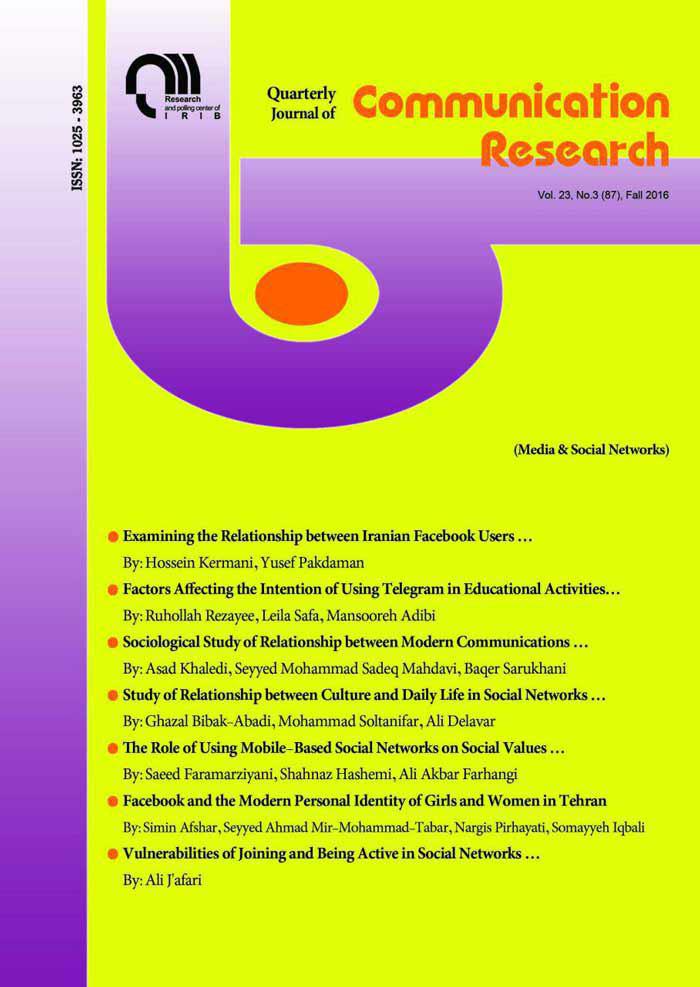Document Type : Social Network
Authors
1 Communication Sciences
2 Associate Prof. in Communication Sciences, Azad Uni.
3 Full Prof. in Communication & managment, Azad Uni.
Abstract
Presence at virtual space – particularly in mobile-based social networks, due to their characteristics, options and special functions as well as social, political and cultural conditions of Iranian citizens – has a deep impact on users' different social values across various cities in Iran. The present paper studies the impact on two generations, i.e. the young and the adult. This research was carried out using a survey and the samples were selected by clustered sampling. The population consisted of mobile-based social networks users of which 512 individuals from both generations from across five different provinces were selected as samples of the study. Findings indicate that there is a relationship between using mobile-base social networks and the level of value-related inter-generational differences between the two generations in question. However, in most cases, this convergence is not positive and results in decreased tendency of both generations towards Iranian society social values. There is also a direct and significant relationship between using social networks and individualistic values, choice of modern dressing and superficial criteria for choosing a wife. However, there is an adversely significant relationship between law-abiding, tendency towards religion, accountability and ethical criteria for choosing wife.
Keywords
work published 1998).
(Original work published 2002).
cyberspace. (M.A. thesis). Allameh Tabatabaei University, Tehran.
(Original work published 1966).
among adolescents in Tehran. (M.A. thesis). Allameh Tabatabaei University, Tehran.
published 2002).
Allameh Tabatabaei University, Tehran.
Ministry of Culture and Islamic Guidance.
review on phenomenon of the generation gap. Tehran: Institute of Humanities and Social Studies.
the cultural identity of the youth. Journal of Iranian association of cultural studeis & communications,
5 (17).

